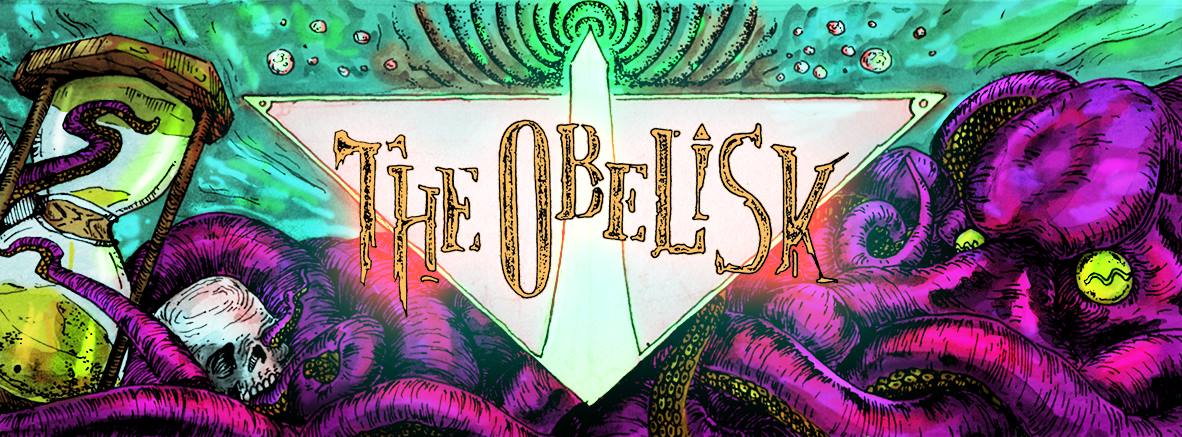Worshipper Sign to Magnetic Eye Records; New Album One Way Trip Out Later This Year
Posted in Whathaveyou on April 11th, 2024 by JJ KoczanKudos to Boston heavy psych rockers Worshipper on joining the powerhouse roster of Magnetic Eye Records. Following two full-lengths on Tee Pee Records in 2019’s Light in the Wire (review here) and their 2016 debut, Shadow Hymns (review here), as well as sundry shorter offerings and appearances here and there, the melody-minded outfit will make offer their awaited third in the months to come with One Way Trip, marking their first release through their new label, also home to the likes of Greenleaf, High Desert Queen, Brume, Abrams and Heavy Temple — and that’s just the list of others with forthcoming releases.
It’s not the first time Worshipper and Magnetic Eye have crossed paths. While the band released their own collection of covers in 2018’s Mirage Daze EP, they’ve taken part in Magnetic Eye‘s ongoing ‘Redux’ series of various-artist album/band tributes, and while it’s been four years since their latest original single, 2020’s “Lonesome Boredom Overdrive,” you can hear for yourself at the bottom of this post that that song still kicks ass. They’ll fit well keeping the company they are.
More to come (I hope) as details and such for One Way Trip are revealed. For now, the signing announcement from the PR wire:
WORSHIPPER sign with Magnetic Eye Records
WORSHIPPER have penned a multi-album deal with Magnetic Eye Records. The psychedelic hard rockers from Boston, New England will release their third album via the label in 2024.
WORSHIPPER comment: “We’re excited to sign with Magnetic Eye Records and to have a new partner in getting our music out to the world,” vocalist and guitarist John Brookhouse writes on behalf of the band. “We’ve been together for 10 years, but in the time since our last release in 2019, we’ve become a new band in many ways. Magnetic Eye really seemed to understand our intent both musically and professionally, so it feels good to be working together in this new phase of our career. It’s a comfortable fit, as we were part of ‘The Wall Redux’ project back in the day and have done some touring with Summoner – in the case of our drummer Dave Jarvis, he actually was in that band for a while – so we already had a bit of a kinship. To the future!”
Jadd Shickler extends his welcome: “Worshipper have been on my radar since they turned in an incredible rendition of ‘One of My Turns’ for ‘The Wall Redux’, taking a pretty deep cut from the original Floyd album and turning it into one of the most listenable tracks on our release”, the Magnetic Eye director reveals. “I love their classic rockin’ sensibility that pushes into heavier territory, a perfect throughline from 70s and 90s radio hard rock to today, but with an actual soul and legitimate authenticity.. and I mean the radio part as a compliment! As much as I like aggressive and extreme stuff at times, I LOVE anthems if they sound like the band means it. When Worshipper write anthems, they absolutely mean it! I can hardly express how stoked I am to welcome them to the Magnetic Eye roster. These guys bring a musical vigor that is gonna blow the roof open when folks hear what they’ve got coming. Welcome to Worshipper, the latest kickass heavy rock band from Boston to join Magnetic Eye!”
New England is not just the epicentre of dark tales from grandmasters of horror H. P. Lovecraft and Stephen King, and Boston is much more than the rebellious Tea Party spark that set the United States’ revolution for independence aflame, as both the city and region are sizzling hotspots of the East Coast rock scene.
To stand apart from a high concentration of like-minded peers, it takes an extra portion of originality and talent. When WORSHIPPER were founded in 2014 by singer and guitarist John Brookhouse, drummer Dave Jarvis, bass player and backing vocalist Bob Maloney, and guitarist Alejandro Necochea, their mission statement was clear: bring something that was missing to the table and deliver a fresh, new flavour to the scene. From the moment of inception till today, the intact original line-up has cranked out impeccable heady and heavy stuff with an emphatic focus on real songs with hooky melodies, creepy vocal harmonies, and twin guitar heroics.
Their gift for catchy epic songwriting did not go unnoticed, and soon a record deal established WORSHIPPER globally with the albums “Shadow Hymns” (2016) and “Light in the Wire” (2019) garnering much praise from critics and fans alike. It also opened doors for heading out on the road, and WORSHIPPER gladly accepted offers to tour with WEEDEATER in the US and THE SKULL in Europe as well as sharing stages with kindred spirits and heroes such as ELDER, LUCIFER, ACE FREHLEY, and MONSTER MAGNET among many others.
WORSHIPPER are set to release their third heavy psychedelic full-length “One Way Trip” via Magnetic Eye Records this year.
Line-up
John Brookhouse – vocals, guitar, synth
Dave Jarvis – drums
Bob Maloney – bass, backing vocals
Alejandro Necochea – guitar, synth
https://www.facebook.com/worshipperband/
https://www.instagram/worshipperband
https://worshipper.bandcamp.com/
http://store.merhq.com
http://magneticeyerecords.com/
https://www.facebook.com/MagneticEyeRecords
https://www.instagram.com/magneticeyerecords/






